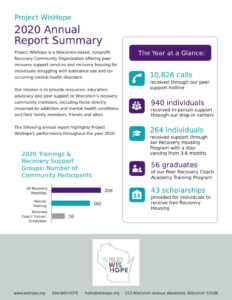Staying sober entails some pretty big asks: self-love, honesty, accountability, patience, and independence. Accompanying many of these asks — but independence in particular — is the feeling of loneliness. From the outside looking in, striving for more agency offers a beacon of light tantalizing hope over a barren sea of anxiety, depression, and/or use disorder. Those first steps of independence, despite the optimism and hope you might have anticipated upon realizing self-empowerment, can instill the resonant doubt of solitude.
Isolation is an experience common to individuals experiencing alcohol and/or substance use disorder as well as the friends and family members directly affected by their addiction. Still, as lonely as independence can feel, right now others are experiencing the same exact feeling. No matter how difficult prioritizing one’s own mental health might feel, someone out there is actively hitting that resistance at the exact same time.
Putting your own needs first equips individuals for helping others when that time inevitably comes. Without bolstering the power of self, there is no self to give in support of others. So why then does the decision to embrace self-love decay into narcissist-fearing guilt the moment one frees themself of codependency?
VULNERABLE NARCISSISM AND SHAME
Picture narcissism. What comes to mind? Maybe it’s a social gathering attended once upon a pre-COVID time when you were stuck in a conversation with someone who only talked about their prerogative. Maybe it looks like a tone-deaf social media account. For a few, the Greek myth strikes a chord. While a majority of narcissistic symbols embody self-concerned extroverts lacking in self-awareness, narcissism also thrives within introverted personas.
Vulnerable narcissism indicates a variation of the condition with high levels of self-doubt and neuroticism. Instead of subsisting from constant peer approval in a performative manner, the dependence upon peer approval manifests as a heightened perception of criticism from peers. The increase in perceived disapproval transforms into shame before individuals redirect their insecurities into personal vendettas against those who they feel doubted them.
Independence represents a break from others across the board. While the benefits of severing ties with abusive aspects of codependent relationships will immediately impact one’s potential for mental and physical well-being, cutting off communications from any long-term relationship might lead to a cycle of acceptance that shares similarities with withdrawal from alcohol and/or substance use disorder. In many ways, recovering from codependency corresponds with the steps of addiction recovery. This is why so many programs stress the importance of independence throughout rehabilitation.
HOW TO SURVIVE LONELINESS
The daily toll of prioritizing your own mental health and sobriety can result in an unrequited sense of effort born of internal willpower. While this sense of control can offer its own reward in time, early on into recovery from alcohol and/or substance use disorder — in conjunction with developing independence within relationships — the brain’s reward complex grasps for validation wherever possible, making individuals highly susceptible to falling back into codependent relationships. How then can recovering individuals strengthen their recovery without allowing loneliness to make them desperate for any relationship, no matter how damaged and unhealthy?
- Peer Sponsorship: An individual relationship with a trusted mentor has the ability to elevate one’s confidence in recovery. Maintaining a strong relationship with a sponsor scratches both itches of fortifying recovery and establishing rewarding, independent relationships without compromising individual goals and sobriety.
- Virtual Group Meetings: During the pandemic, many recovery facilities have pivoted to hosting online group meetings for those recovering from alcohol and/or substance use disorder. These meetings aim to create a space open for individuals in recovery to share their successes and struggles without the fear of judgment. Particularly for individuals with vulnerable narcissism or covert narcissism, these meetings open up a rare opportunity to shift focus from criticism to understanding.
- Healthy Hobbies: Engaging with people who share interests in healthy activities allows for a levity absent in many intimate relationships. Rather than maintaining a relationship for the sake of investing or receiving personal validation, the collaborative spirit of endeavoring to accomplish an external goal provides the cognitive reward we so often seek from others, regardless of how capable another person might be to provide it. If these activities also promote exercise, time outside, and avoiding screen time, that is all for the better. But given many stay-at-home orders currently in place, these hobbies may likely require screens for now.
- Recovery Literature and Podcasts: Immersing oneself fully in the world of recovery helps some reinforce the lessons learned in recovery facilities. Rather than the white noise of entertainment — which is frequently laden with advertisements promoting alcoholic or otherwise triggering products — seeking out media that encourages sobriety opens up a new world of normalizing recovery. Although some do feel that overconsumption of recovery media can overwhelm their capacity to lead what might feel like a more conventionally “normal” existence.
- Online Forums: As a modern update to journaling, posting on internet forums helps to make connections with others who might share similar experiences. The ability to identify with the experiences of another doesn’t quite quench the air bubble of loneliness, but it does make recovery feel slightly less like a solipsistic exercise.
Nobody enjoys the feeling of loneliness. Community is what sets humanity apart from more solitary creatures. The need to share feelings comes from somewhere within that we, as a species, have barely scratched the surface of understanding. When it comes to sharing sobriety, finding like-minded individuals to confide in might prove more difficult for some than others. Taking the time to reflect on the complex emotional fallout of recovery is a must. Don’t hesitate to reach out for resources that might assist in connecting individuals who are seeking to empower their sober lifestyles through one another. There are many resources to help those in recovery find the support and listening ears they need. At WisHope, we realize that the road to recovery is a weathered one. We strive to empower sober success stories through a detailed recovery program, impacting peers long after they leave a treatment facility or recovery home. Don’t wait to get help — call us today at (844) 947-4673.


